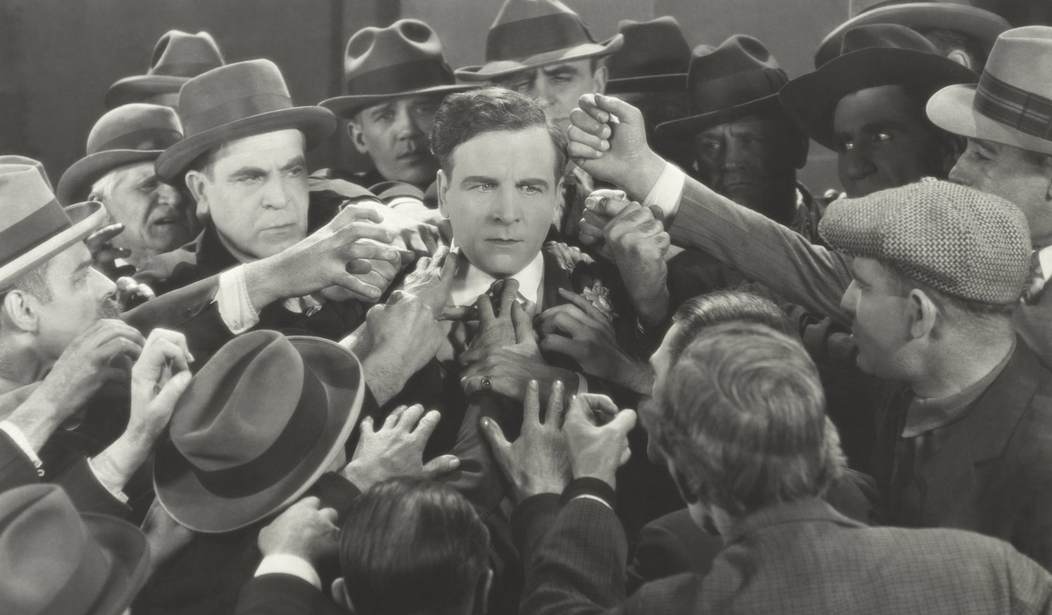A district judge struck down an effort by California regulators to force a conservative nonprofit to hand over a list of its major donors on Thursday. The judge cited a Civil Rights-era case which established donors’ right to anonymity in cases where their support for an organization might endanger them.
In a victory for free speech, U.S. District Judge Manuel Real ruled that Attorney General Kamala Harris’s office had no right to prevent the nonprofit from raising money unless it turned over a list of its donors. Real had previously ruled last year that this requirement for donor information would “chill” free speech, an argument he maintained this week. He sided with the conservative group Americans for Prosperity (AFP) Foundation, which has ties to the network of nonprofit groups supported by billionaire brothers Charles and David Koch.
“During the course of the trial, the Court heard ample evidence establishing that AFP, its employees, supporters and donors face public threats, harassment, intimidation, and retaliation once their support for and affiliation with the organization becomes publicly known,” Real wrote. A lawyer for AFP presented numerous threats posted on Twitter, which illustrated the anger directed at the organization.
While one journalist mocked this defense, the hatred directed against these philanthropists is no laughing matter.
AFP invoked the Supreme Court’s 1958 decision in NAACP v. Alabama, which upheld the privacy of donors and members under the First Amendment. Harris, the attorney general who is also running for U.S. Senate, downplayed these threats as far less severe than the ones faced by the NAACP during the 1950s.
“Although the Attorney General correctly points out that such abuses are not as violent or pervasive” as those faced by the NAACP, “this court is not prepared to wait until an AFP opponent carries out one of the numerous death threats made against its members,” the judge wrote.
Given these threats, Real said that any need by the state of California to use the data for potential fraud investigations must take second place to the donors’ right to privacy. Harris argued that California uses the data from tax-exempt organizations to investigate possible fraud, alleging that donors might use a charity to fund their businesses or to pass money to family members. The judge ruled that Harris’ demand was “more burdensome than necessary.”
AFP Foundation pointed to 1,778 donor lists that that AG Harris publicly posted online, arguing that Harris is making the direct disclosure of donors very likely. The foundation already releases this donor list to the Internal Revenue Service, but the IRS keeps the list secret. Harris argued that it was her policy to keep the names secret.
The anger against conservative groups and causes is well-known and unavoidable. In 2012, a lone gunman attacked the Family Research Council (FRC) in Washington, D.C., because the group was listed as a “hate group” by the Southern Poverty Law Center. Last year, “Social Justice Warriors” made death threats against Minnesota dentist Walter Palmer, shutting down his practice and sending him into hiding for poaching a lion. Lord knows what some people will do if they knew the names of people giving thousands of dollars to the hated and maligned “Koch brothers.”
Next Page: The battle is far from over.
This ruling is not the end of the issue, however. “We are disappointed in Judge Real’s ruling and intend to appeal,” Kirstin Ford, a spokeswoman for Harris, said in a statement. “The filing of [these donor lists] is a long-standing requirement that has helped attorneys general for more than a decade protect taxpayers against fraud.”
Victor Bernson, Vice President and General Counsel at AFP, predicted the appeal will get nowhere. “We’re confident that our free speech protections will prevail, and we’re willing to continue to keep fighting to defend those rights on behalf of every American who wants to privately support a cause — regardless of their ideology,” Bernson wrote in an email statement to PJ Media on Friday.
He also predicted that the attorney general and others would continue pressuring for the public disclosure of donors, and promised that AFP would oppose such attacks in the future.
“We’ll speak out when tactics are used to open private citizens up to fear of harassment or retribution,” Bernson declared. “Participating in the public square, whether it’s publicly or anonymously, has been a fundamental part of our nation and no matter the tactics, we believe that will endure.”










Join the conversation as a VIP Member